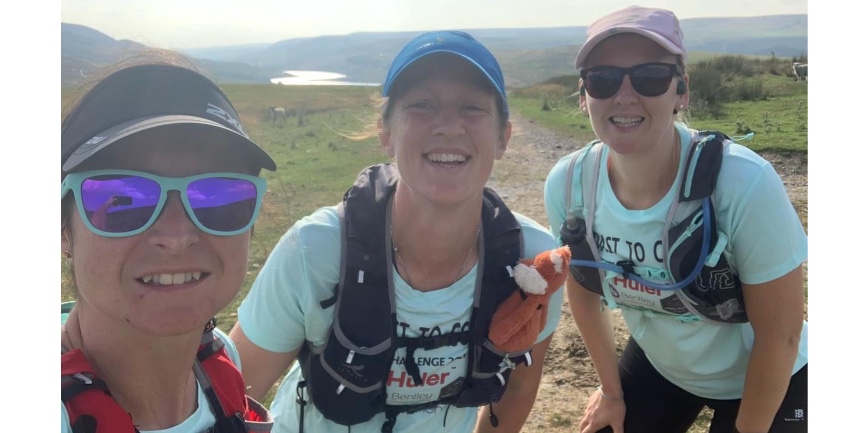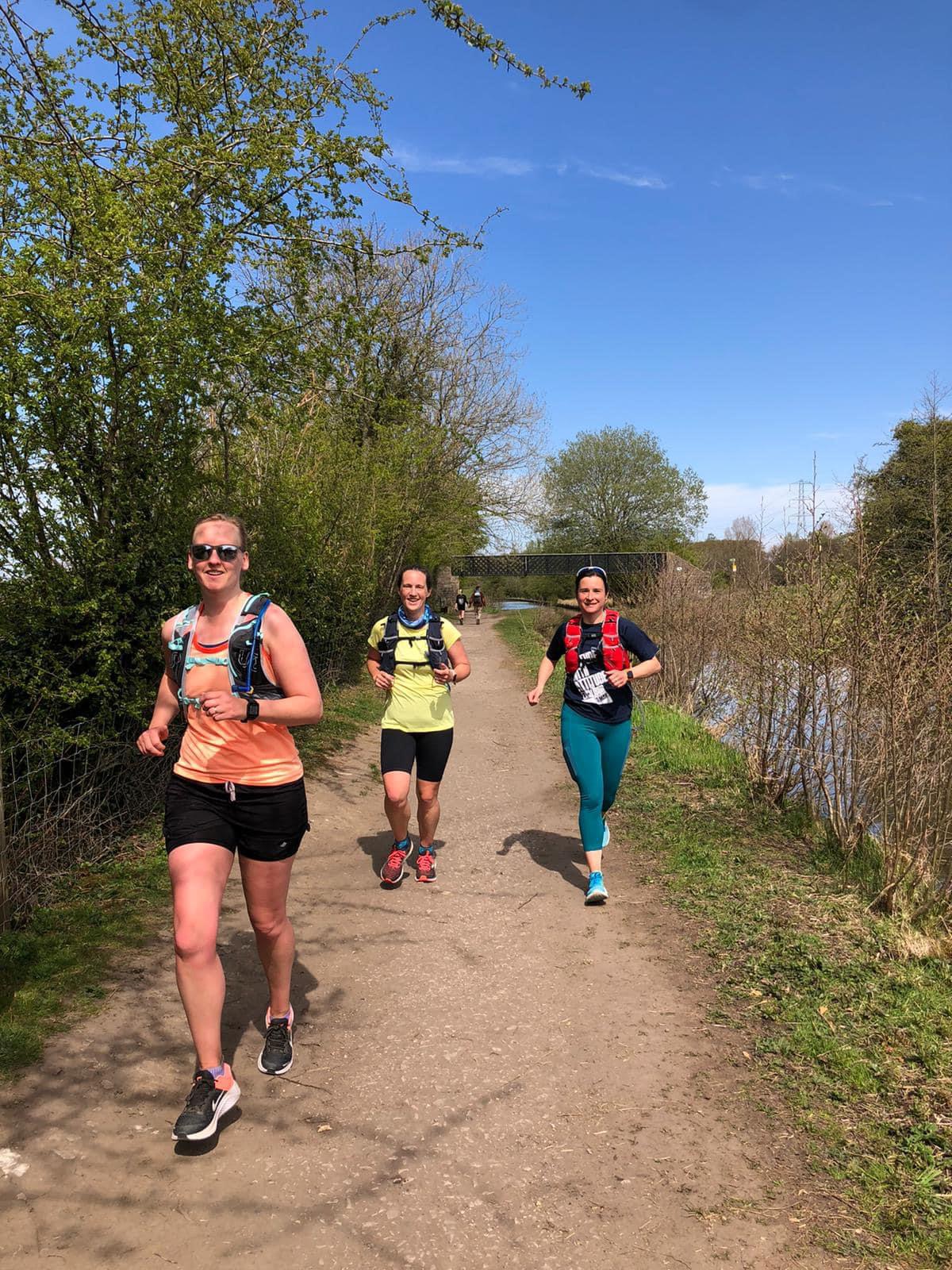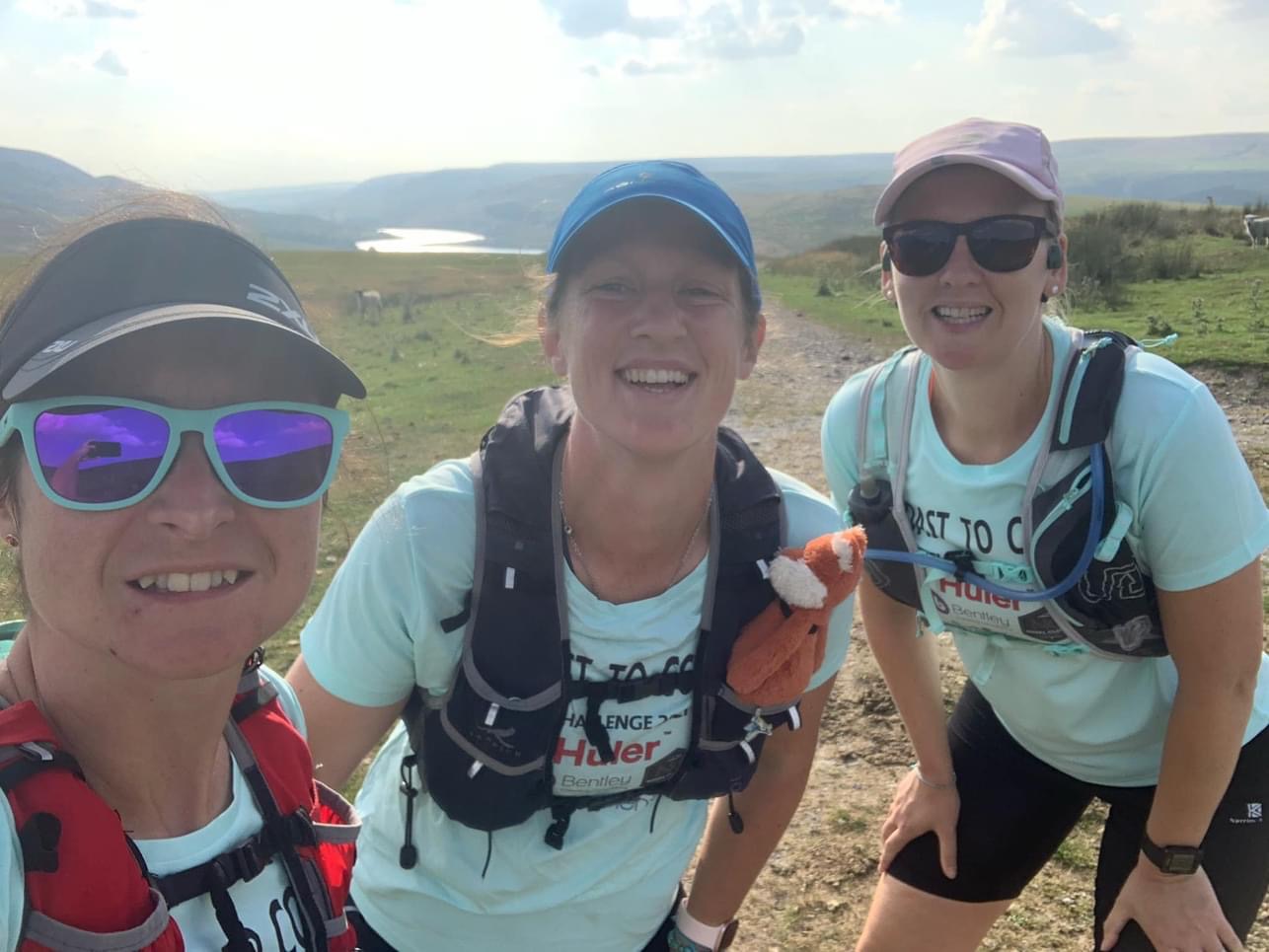Hazel and Gemma are running for Manchester Children’s Hospital

Story
Hazel and Gemma are running for RMCH Charity
We’ve had a fairly rubbish first experience of severe haemophilia. We have absolutely no family history of any bleeding disorders and as a carrier (which we now know I am) I have no symptoms at all and actually have high levels of Fox’s missing clotting factor. So when our first little boy Rufus was born it wasn’t even a consideration when he started to get a bit poorly that it could be anything to do with haemophilia. Aged 5 days he was rushed to hospital, had emergency brain surgery to release the pressure from a bleed on his brain. Questions were asked, had we dropped him? Abused him? What was wrong? Through extensive blood tests at Manchester Children’s Hospital it was found that he had low levels of Factor 8 and was a haemophiliac. It was difficult to find as he’d had platelets and blood from donors during surgery so this had artificially bumped his levels up (donate blood if you can! 💉) However even though this was discovered it was too late, Rufus’ brain bleed sustained when being born, had caused so much pressure and damage that his injury was not survivable. His machines were turned off and he lived for a few short minutes with us before he died, aged 7 days.
We read a lot, what is Haemophilia? A very quick explanation is:
The clotting process after a bleed either internally or externally is a chain of events that happen and need certain components and proteins in our blood. If one of these is missing or only present in small amounts then you have problems if you bleed. We have Severe Haemophilia A, so our boys lack Factor 8. Fox has less that 1% of a non bleeders so basically non. The part of the process this affects is holding the blood clot in place. His platelets do their bit and make a blood clot but the protein is not formed to provide the scaffolding to keep this clot in place so it breaks free and the injury starts bleeding again. This is what happen to Rufus, a small bleed in his brain caused at birth just kept slowly bleeding over days until the pressure built so much inside his head that he started to become ill, if we had known he had it or found out quick enough he could’ve been saved with a simple injection of his missing factor.
I had genetic testing but nothing was found initially, so it was though that Rufus’ haemophilia was a spontaneous occurrence. Skip forward a few years (I wish it was that easy as they were really difficult times!) Fox arrives, some precautions were put in place, more to help me psychologically deal with things and just to check Fox didn’t have it. Well a few hours after giving birth to a seemingly healthy and perfect little boy, blood tests came back and like a punch in the face, bang, Fox has severe haemophilia. Fear, worry, why us? Is he going to die as well? This isn’t fair. Just some of the feelings in those following days (and still some moments now if I’m being honest, but not very often!!) An appointment with Dr Grainger, Fox’s haematologist when he was a couple of days old at Manchester Children’s Hospital helped us feel much more positive and like we could maybe just manage this and Fox has the chance of a relatively ‘normal’ life. Can’t ever thank him enough for that chat and answering our stack of questions.
Now, with the advances in medication and research, Fox is on a fantastic medication called Hemlibra. He is injected twice a month at home and can continue with all normal stuff a 6 year old should do! We get checks every 6 months from the team at RMCH and his team is just fantastic and we still have a catch up with Dr Grainger every time we’re in, we’re so well looked after.
We will continue to raise money for Rufus’ legacy and so that hopefully no family will have to go through what we did. Fox has a brilliant future ahead of him and RMCH has made sure of that.
As a charity our mission is simple: to support the excellence in treatment, research and care we provide to our patients at our family of 10 NHS hospitals in Manchester and Trafford, each and every day. We want to make a real difference to the people we treat young and old by making sure that they continue to receive the very best treatment in the very best facilities.
We do this by focusing our fundraising efforts on three key areas treatment, research and care. This can include the purchase of cutting-edge equipment, funding pioneering medical research and creating a patient-friendly environment allowing patients, and their families, to feel welcome and at ease during their time in hospital.


